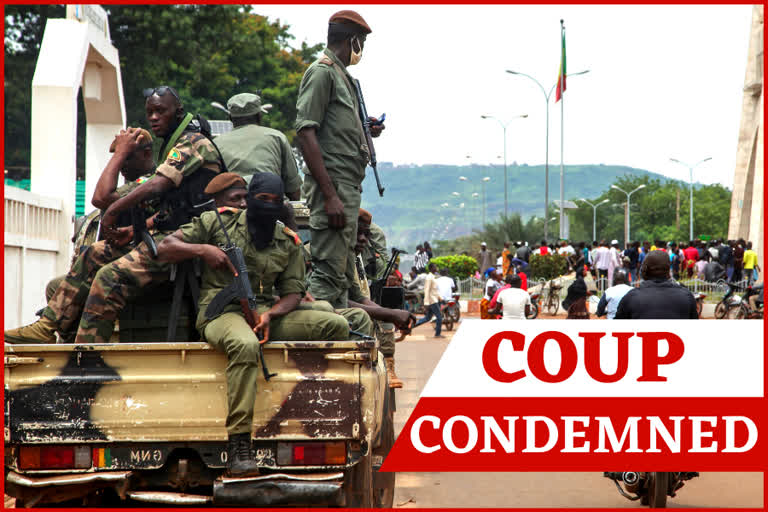Bamako: The soldiers who forced Mali's president from power promised on Wednesday to hold elections to return the country to civilian rule, but African Union has immediately suspended Mali's membership from the bloc.
Western leaders have also condemned the coup and expressed concern for the country's stability.
Read also:Mali soldiers behind coup take to airwaves, promise handover
After months of anti-government protests amid deteriorating security in the West African nation, President Ibrahim Boubacar Keita's hand was forced Tuesday when mutinous soldiers surrounded his residence, fired shots into the air and eventually detained him and his prime minister. Keita later announced his resignation on state broadcaster ORTM.
News of Keita's departure was met with jubilation by anti-government demonstrators in the capital, Bamako, and alarm by former colonial ruler France, and other allies and foreign nations.
Read also:13 French soldiers killed in helicopter collision in Mali
The mutinous soldiers — who identified themselves as the National Committee for the Salvation of the People — tried to calm concerns in an address on state broadcaster ORTM early Wednesday.
"With you, standing as one, we can restore this country to its former greatness," said spokesman Col. Maj. Ismael Wague, announcing that Mali's borders were closed and imposing a nighttime curfew from 9 p.m. to 5 a.m.
Wague said the committee will implement a transition to civilian political rule with elections held in a "reasonable amount of time," but gave no timeline.
Mali was long hailed as a pillar of stability and democracy in West Africa, but it has been beset by insecurity since 2012, when a coup created a power vacuum that Islamic extremists took advantage of. Their rapid march through the country's north alarmed the international community, as they set up a parallel state that many feared would threaten the security of the entire region.
French-led forces pushed back the jihadists in 2013, and a U.N. peacekeeping force of more than 15,000 troops is now on the ground, costing some $1.2 billion annually. But even with substantial help from France's military, Malian forces have failed to end the attacks, which increased dramatically last year, unsettling the population and neighboring countries.
Instability in Mali threatens the entire Sahel — an arid, thinly populated region south of the Sahara — where the U.S. also has about 1,400 troops, including special forces. In the years since the Islamic insurgency began in Mali, the rise of extremism also has increasingly destabilized neighbors Burkina Faso and Niger.
The UN quickly criticized Tuesday's military takeover, and the Security Council scheduled a closed meeting Wednesday afternoon to discuss the situation. The influential West African regional bloc ECOWAS said it was sending a high-level delegation to "ensure the immediate return to constitutional order."
The bloc had previously sent mediators to negotiate a unity government, but those talks fell apart when it became clear that the protesters would not accept anything less than Keita's resignation.
The African Union and ECOWAS condemned the coup and called for a quick return to civilian rule. The West African bloc said it would stop all economic, trade and financial flows and transactions between ECOWAS states and Mali.
